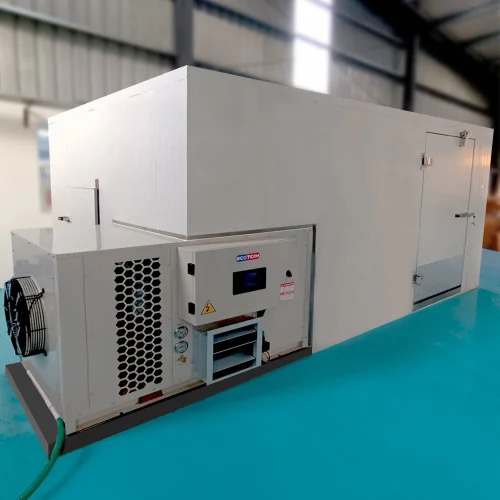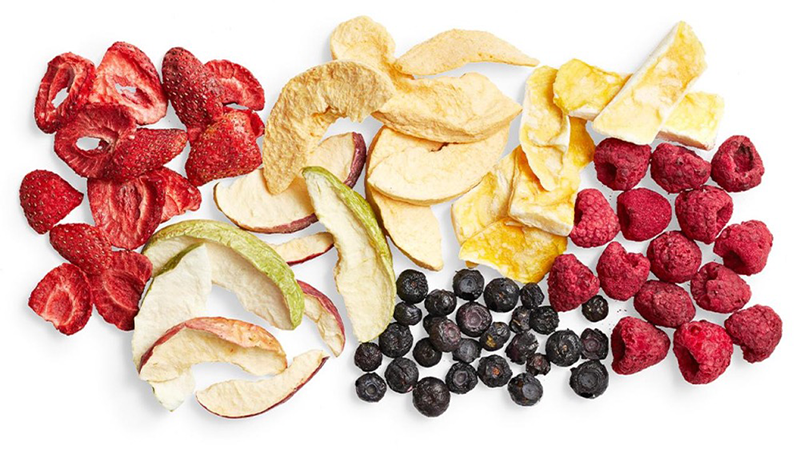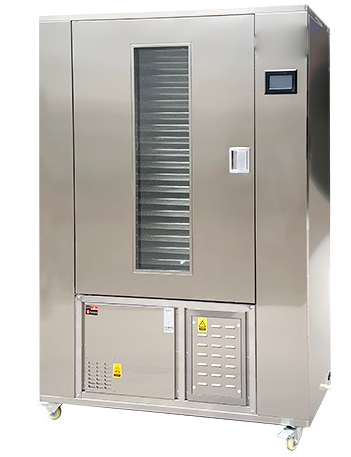
Content Menu
● What is a Heat Pump Dryer?
>> Advantages of Heat Pump Dryers
● What is a Condenser Dryer?
>> Advantages of Condenser Dryers
● Heat Pump Dryer vs. Condenser Dryer: A Comparison
● Which is Better for Your Budget?
● Key Considerations When Choosing a Food Dryer
● Additional Benefits of Heat Pump Dryers
● Additional Benefits of Condenser Dryers
● Industry Applications
● Conclusion
● FAQ
>> 1. What are the main differences between heat pump dryers and condenser dryers?
>> 2. Are heat pump dryers more energy-efficient than condenser dryers?
>> 3. Which type of dryer is better for delicate foods?
>> 4. What factors should I consider when choosing a food dryer?
>> 5. Is there a significant cost difference between heat pump and condenser dryers?
In the world of food processing, drying is an essential step that preserves the quality, flavor, and nutritional value of food products. As a manufacturer of food drying machines, understanding the differences between heat pump dryers and condenser dryers is crucial for making informed decisions about equipment purchases. This article will explore the advantages and disadvantages of each type of dryer, helping you determine which is best suited for your needs.

What is a Heat Pump Dryer?
A heat pump dryer is an advanced drying system that uses a refrigeration cycle to remove moisture from food products. It operates by circulating warm air through a heat exchanger, where moisture is extracted from the air and condensed into water. This process allows for efficient drying at lower temperatures, preserving the integrity of the food.
Advantages of Heat Pump Dryers
- Energy Efficiency: Heat pump dryers are known for their energy efficiency. They use less electricity compared to traditional dryers because they recycle heat within the system.
- Gentle Drying: The lower drying temperatures help maintain the quality and nutritional value of food products, making them ideal for delicate items like fruits and herbs.
- Versatility: Heat pump dryers can be used for a wide range of food products, including vegetables, fruits, meat, and fish.
- Environmentally Friendly: With lower energy consumption and reduced greenhouse gas emissions, heat pump dryers are an eco-friendly option.
What is a Condenser Dryer?
A condenser dryer is a more traditional drying system that removes moisture from food by using a heating element to warm air. The warm air is circulated through the food product, evaporating moisture, which is then condensed into water in a separate chamber.
Advantages of Condenser Dryers
- Faster Drying Times: Condenser dryers typically operate at higher temperatures, which can lead to quicker drying times compared to heat pump dryers.
- Lower Initial Costs: Generally, condenser dryers have a lower upfront cost than heat pump models, making them more accessible for small businesses or startups.
- Simple Operation: These dryers are often easier to operate and maintain due to their straightforward design.
Heat Pump Dryer vs. Condenser Dryer: A Comparison
To help you make an informed decision, let's compare heat pump dryers and condenser dryers across various factors:
| Feature | Heat Pump Dryer | Condenser Dryer |
| Energy Efficiency | High | Moderate |
| Drying Temperature | Low (gentle on food) | High (faster drying) |
| Initial Cost | Higher | Lower |
| Operating Cost | Lower (energy savings) | Higher (more energy consumption) |
| Maintenance | Moderate (more complex) | Low (simpler design) |
| Environmental Impact | Lower (eco-friendly) | Higher (more emissions) |
Which is Better for Your Budget?
When deciding between a heat pump dryer and a condenser dryer, consider your specific needs and budget constraints.
- If your priority is energy efficiency and preserving the quality of delicate foods, a heat pump dryer might be the better investment despite its higher initial cost.
- On the other hand, if you require faster drying times and have budget limitations, a condenser dryer could be more suitable.

Key Considerations When Choosing a Food Dryer
When selecting the right food dryer for your business, consider the following factors:
- Type of Food Products: Different foods require different drying methods. For example, fruits may benefit from lower temperatures provided by heat pump dryers. Conversely, tougher items like jerky may dry faster in condenser models.
- Production Volume: Assess your production needs. Larger operations may benefit from investing in more efficient equipment that can handle high volumes without compromising quality.
- Energy Costs: Analyze your local energy costs as this can significantly impact long-term operational expenses. A heat pump dryer may have higher upfront costs but could save money on energy bills over time.
- Space Requirements: Ensure that you have adequate space for installation and operation of the chosen dryer. Heat pump dryers often require additional space for air circulation compared to condenser dryers.
Additional Benefits of Heat Pump Dryers
Heat pump dryers not only offer energy savings but also come with several other benefits that make them an attractive option:
- Humidity Control: Heat pump technology allows for better control over humidity levels during the drying process. This feature helps in achieving optimal drying conditions tailored to specific food types.
- Reduced Risk of Over-Drying: With precise temperature control, heat pump dryers minimize the risk of over-drying foods, which can lead to loss of flavor and nutrients.
- Longer Equipment Lifespan: Due to their efficient operation at lower temperatures, heat pump dryers often experience less wear and tear compared to high-temperature systems. This can result in longer equipment lifespans and reduced maintenance costs over time.
Additional Benefits of Condenser Dryers
While heat pump dryers have many advantages, condenser dryers also offer unique benefits:
- Quick Setup Time: Many condenser dryer models are easy to install and require minimal setup time compared to more complex heat pump systems.
- Robustness in Operation: Condenser dryers are often built to handle rougher operational conditions and can be more forgiving when it comes to variations in product input moisture levels.
Industry Applications
Both types of dryers find applications across various industries:
- Food Processing Plants: Both heat pump and condenser dryers are used in large-scale food processing plants where efficiency and speed are critical.
- Small Scale Operations: Small businesses or home-based operations may prefer condenser dryers due to their lower initial costs and ease of use.
- Herb Drying Facilities: Heat pump dryers are particularly favored in herb drying facilities where maintaining essential oils and flavors is crucial.
Conclusion
In conclusion, both heat pump dryers and condenser dryers have their own unique advantages and disadvantages. The choice between them ultimately depends on your specific requirements regarding energy efficiency, drying speed, initial investment costs, and the types of food products you plan to dry.
Investing in the right food drying technology can enhance your production capabilities while ensuring high-quality end products. Whether you opt for a heat pump or condenser dryer, understanding their functionalities will help you make an informed decision that aligns with your business goals.

FAQ
1. What are the main differences between heat pump dryers and condenser dryers?
Heat pump dryers operate at lower temperatures using a refrigeration cycle for moisture removal, while condenser dryers use higher temperatures and rely on heating elements to evaporate moisture quickly.
2. Are heat pump dryers more energy-efficient than condenser dryers?
Yes, heat pump dryers are generally more energy-efficient because they recycle heat within the system, resulting in lower electricity consumption compared to condenser dryers.
3. Which type of dryer is better for delicate foods?
Heat pump dryers are better suited for delicate foods as they operate at lower temperatures that help preserve flavor and nutritional value.
4. What factors should I consider when choosing a food dryer?
Consider factors such as type of food products being dried, production volume needs, energy costs in your area, and available space for installation.
5. Is there a significant cost difference between heat pump and condenser dryers?
Yes, heat pump dryers typically have a higher initial cost but offer long-term savings through energy efficiency. Condenser dryers have lower upfront costs but may incur higher operational expenses due to increased energy use.












